
by Ria Olivier | Oct 8, 2024 | Antarctica, Research, SANAP, SANAP Student, SCAR
A dive into the latest research and activities within the Scientific and Antarctic Research community during the biannual conference in Chile.

 In today’s rapidly evolving scientific landscape, research conferences serve as vital hubs for knowledge exchange, fostering innovation, and building collaborations across disciplines. The recent SCAR conference held in Pucon, Chile during August brought together leading scholars and emerging researchers from around the globe. The event was packed with groundbreaking presentations, hands-on workshops, and insightful discussions that highlighted the latest trends shaping the future of research.
In today’s rapidly evolving scientific landscape, research conferences serve as vital hubs for knowledge exchange, fostering innovation, and building collaborations across disciplines. The recent SCAR conference held in Pucon, Chile during August brought together leading scholars and emerging researchers from around the globe. The event was packed with groundbreaking presentations, hands-on workshops, and insightful discussions that highlighted the latest trends shaping the future of research.
 Here’s a closer look at the highlights and takeaways from this year’s conference. (above: Session on sub-Antarctic was an all South African session)
Here’s a closer look at the highlights and takeaways from this year’s conference. (above: Session on sub-Antarctic was an all South African session)
Plenary Lectures and Mini Symposia: The conference had a series of plenary lecture from some of the most respected minds in academia. Dr Victoria Nuviala from Madrid Institute for Advanced Study (MIAS), shared insights into An Architectural Biography of Antarctica. The reckoning: how #MeTooAntarctica is changing fieldwork a presentation by Dr Meredith Nash
 Groundbreaking Research Papers. One of the conference’s core components was the presentation by researchers during the different parallel sessions. Each session provided opportunity for Q&A, enabling in-depth conversations between the audience and the researchers, fostering a true sense of intellectual community. South African researchers presented during these sessions. (above a few presenters captured during their present picture above: Session on sub-Antarctic was an all South African sessions)
Groundbreaking Research Papers. One of the conference’s core components was the presentation by researchers during the different parallel sessions. Each session provided opportunity for Q&A, enabling in-depth conversations between the audience and the researchers, fostering a true sense of intellectual community. South African researchers presented during these sessions. (above a few presenters captured during their present picture above: Session on sub-Antarctic was an all South African sessions)
 Workshops. Experts from organizations guided participants through various disciplines. Ria Olivier held a workshop on publications in the Antarctica Community and resources on data management
Workshops. Experts from organizations guided participants through various disciplines. Ria Olivier held a workshop on publications in the Antarctica Community and resources on data management
 Poster Sessions: Spotlight on Research in addition to formal presentations, these sessions provided a platform for researchers to showcase their work.
Poster Sessions: Spotlight on Research in addition to formal presentations, these sessions provided a platform for researchers to showcase their work.
 Networking and Collaboration. Beyond the formal sessions, the networking opportunities were an integral part of the conference. Through social events, coffee breaks, and an industry exhibition, participants had the chance to connect with peers, potential collaborators, and mentors.
Networking and Collaboration. Beyond the formal sessions, the networking opportunities were an integral part of the conference. Through social events, coffee breaks, and an industry exhibition, participants had the chance to connect with peers, potential collaborators, and mentors.
NEXT SCAR in Norway in 2026! !
Conclusion – SCAR2024 was a celebration of innovation, collaboration, and cutting-edge research. It provided a rich platform for learning, networking, and exchanging ideas that will shape the future of research. For attendees, the event was not only an opportunity to showcase their work but also a reminder of the collaborative spirit that drives scientific progress. As we look forward to next conference, it’s clear that the future holds exciting developments in Antarctic Research, and conferences like this one will continue to play a crucial role in fostering those advancements.
Activities during SCAR2024
Oral & Poster Presentations

by Ria Olivier | Sep 5, 2024 | Gough Island, Overwintering Team, SANAP

 A departure ceremony took place at East Pier, Cape Town today. Mr. Rodgerson Hlophe(right) – Acting Director: Southern Oceans and Antarctic Support was the Programme director and introduce the takeover personnel and the Gough 70 overwintering team.
A departure ceremony took place at East Pier, Cape Town today. Mr. Rodgerson Hlophe(right) – Acting Director: Southern Oceans and Antarctic Support was the Programme director and introduce the takeover personnel and the Gough 70 overwintering team.
 Acting Chief Director: Specialist Monitoring Services Ashley Johnson gave a farewell speech to GOUGH 70 overwintering team. and wishes them all the best for the time they will spend on Gough Island.
Acting Chief Director: Specialist Monitoring Services Ashley Johnson gave a farewell speech to GOUGH 70 overwintering team. and wishes them all the best for the time they will spend on Gough Island.
Cover Photo: Tom McSherry

by Ria Olivier | Aug 19, 2024 | Current Event, Research, SANAP
The XIth SCAR – Open Science Conference & Biennial Meetings is held in Pucón– Chile in August 2024. There are many researchers from South Africa that will be presenting during the conference. We wish them all the best.
 SCAR2024 Information and Programme
SCAR2024 Information and Programme
Follow us on Twitter for updates!

by Ria Olivier | Aug 9, 2024 | Antarctica, APECSSA, Commemorative Days, Gough Island, Legacy, Marion Island, Overwintering Team, Research, SANAE IV, SANAP
Theme of the National Women’s Day Commemoration:
“Celebrating 30 Years of Freedom Towards Women’s Development”
 In the SANAP community we are celebrating all those involved as Researchers, Scientists, and Students at tertiary and research institutions and infrastructures, and personnel within the National Research Foundation, the Department of Forestry, Fisheries and the Environment, the Department of Public works and Infrastructure, the South African Weather Services, the South African National Space Agency, the South African Polar Research Infrastructure and all the women serving as part of the crew of the S.A. Agulhas II.
In the SANAP community we are celebrating all those involved as Researchers, Scientists, and Students at tertiary and research institutions and infrastructures, and personnel within the National Research Foundation, the Department of Forestry, Fisheries and the Environment, the Department of Public works and Infrastructure, the South African Weather Services, the South African National Space Agency, the South African Polar Research Infrastructure and all the women serving as part of the crew of the S.A. Agulhas II.
 Celebrating our women overwintering team members at our stations: Antarctica (SANAEIV), Marion Island and Gough Island.
Celebrating our women overwintering team members at our stations: Antarctica (SANAEIV), Marion Island and Gough Island.
 2024 women’s day commemoration is a reminder of the important contributions that are made by women to society, as well as a time to reflect on the advances in women’s rights. During 30 years of democracy, South Africa has made significant strides in advancing gender equality in all domains of society, including economic empowerment of women.
2024 women’s day commemoration is a reminder of the important contributions that are made by women to society, as well as a time to reflect on the advances in women’s rights. During 30 years of democracy, South Africa has made significant strides in advancing gender equality in all domains of society, including economic empowerment of women.
 Women’s Day 2024 is the first national day led by the Government of National Unity (GNU) and takes place in a rural community as part of including all South Africans in national events, and placing a focus on the achievements and needs of women in all corners of the country. President Cyril Ramaphosa is expected to officiate the national Women’s Day commemoration in Pofadder in the Namakwa District, Northern Cape. – SAnews.gov.za
Women’s Day 2024 is the first national day led by the Government of National Unity (GNU) and takes place in a rural community as part of including all South Africans in national events, and placing a focus on the achievements and needs of women in all corners of the country. President Cyril Ramaphosa is expected to officiate the national Women’s Day commemoration in Pofadder in the Namakwa District, Northern Cape. – SAnews.gov.za

by Ria Olivier | Jul 5, 2024 | Antarctica, Research, SANAP
 Prof Steven Chown of SAEF visited South Africa during the month of June. The Antarctic Legacy of South Africa at the Department of Botany and Zoology of Stellenbosch University hosted him for a lunch, talk and future discussions.
Prof Steven Chown of SAEF visited South Africa during the month of June. The Antarctic Legacy of South Africa at the Department of Botany and Zoology of Stellenbosch University hosted him for a lunch, talk and future discussions.
The main focus of the talk was that Antarctica is the only continent set aside as a natural reserve devoted to peace and science, with environmental protection mandated through the Protocol on Environmental Protection to the Antarctic Treaty. The extent to which these legal protections succeed depends on high-quality biodiversity knowledge, for status and trends of indigenous species, and for the same information with respect to Invasive Alien Species (IAS), along with understanding of the pressures on the region. Yet such information is remarkably fragmentary, and its route into the policy environment less than straightforward. In consequence, whether that best available data, information, and knowledge are accessible to decision-makers, practitioners, and the public for the region is a work in progress.
“Antarctica’s Future is a choice. We have not yet made that choice, though seem set on a poor one. Choosing a better one will mean choosing a better life for all of us. Making the Antarctic a regular thought in our daily lives is the way to do so. Antarctica’s Future is Everyone’s Future.” – Prof Steven Chown”
SAEF WEBSITE
 Prof Theresa Wossler, Head of the department, welcomed Prof Chown and introduced him to the attendees. The presentation and talk were attended by eighty-six people in person, who were able to have a chat with Prof Chown afterwards in a coffee break. The talk was streamed online and ninety-six people, representing institutions such as Stellenbosch University, Nelson Mandela University, University of Cape Town, University of Johannesburg, University of South Africa, University of Pretoria, the National Research Foundation, the Department of Forestry, Fisheries, and the Environment and from Belgium from the Department of Natural Sciences were able to attend
Prof Theresa Wossler, Head of the department, welcomed Prof Chown and introduced him to the attendees. The presentation and talk were attended by eighty-six people in person, who were able to have a chat with Prof Chown afterwards in a coffee break. The talk was streamed online and ninety-six people, representing institutions such as Stellenbosch University, Nelson Mandela University, University of Cape Town, University of Johannesburg, University of South Africa, University of Pretoria, the National Research Foundation, the Department of Forestry, Fisheries, and the Environment and from Belgium from the Department of Natural Sciences were able to attend
In the presentation, current progress in resolving the challenges brought by Antarctic change was laid out, including the way in which progress in the Antarctic region may inform and be informed by developments elsewhere. Biodiversity informatics examples that have been applied to questions such as wilderness, non-native species trends, and the likely drivers of biodiversity change are used here to illustrate the power of the approach to inform and improve policy implementation.
Antarctica and its surrounding Southern Ocean are entirely removed from everyday thought. They are remote, isolated, largely unpopulated, and rarely feature in the news. Yet the continent and its surrounding ocean are an intimate part of our daily lives. They regulate the climates we experience and have a large influence on climate extremes.
 The Antarctic Ice Sheet contains 58 m of sea level rise were it to melt entirely. We are already committed to 44-70 cm of global mean sea level rise, meaning that within many lifespans, 1 in 100-year floods will become annual. Sea level rise could be as much as 2 m by 2100. The extra contribution will come from the Antarctic, but we remain uncertain about when we might expect such an addition, and what its exact size will be. Planning for the best has never been a good risk mitigation strategy.
The Antarctic Ice Sheet contains 58 m of sea level rise were it to melt entirely. We are already committed to 44-70 cm of global mean sea level rise, meaning that within many lifespans, 1 in 100-year floods will become annual. Sea level rise could be as much as 2 m by 2100. The extra contribution will come from the Antarctic, but we remain uncertain about when we might expect such an addition, and what its exact size will be. Planning for the best has never been a good risk mitigation strategy.
 Antarctica is also home to some of the world’s most extraordinary biodiversity. While we may be used to its value in western culture, appreciation for its life has a much longer history with first peoples. Biodiversity is now significantly under threat from changing climates, human activities, and their interaction.
Antarctica is also home to some of the world’s most extraordinary biodiversity. While we may be used to its value in western culture, appreciation for its life has a much longer history with first peoples. Biodiversity is now significantly under threat from changing climates, human activities, and their interaction.
Text from Prof Steven Chown abstract. Images : Antarctic Legacy of South Africa

by Ria Olivier | Jul 1, 2024 | Geomorphology, Marion Island, Research, SANAP, Science
Twenty‐thousand‐year gap between deglaciation and peat formation on sub‐Antarctic Marion Island attributed to climate and sea level change
 Article published by Werner Nel, Dominic Hodgson, David Hedding, Alex Whittle and Elizabeth Rudolph
Article published by Werner Nel, Dominic Hodgson, David Hedding, Alex Whittle and Elizabeth Rudolph
Full Article Available Here
Radiocarbon dating of basal peats has been a key factor in determining minimum ages for deglaciation on sub‐Antarctic islands. On Marion Island, peat bogs dominate the landscape below 300m a.s.l., and palynological assessments of peat cores have been used to assess the vegetation history and succession rates as well as the sensitivity of the indigenous flora to climatic change. Initiation of peat on the sub‐Antarctic islands signifies a major landscape change which has previously been linked to the retreat of glaciers. Here we test this hypothesis by comparing previously published and new basal peat ages from Marion Island with cosmogenic isotope dates for deglaciation, and local and regional palaeo‐environmental changes. Results show that, in common with other sub‐Antarctic islands, peat initiation occurred after the Antarctic Cold Reversal (15–13 ka) and through the early Holocene climate optimum. This substantially postdates cosmogenic isotope evidence for deglaciation from the basalts which shows that the areas where the peatlands dominate were ice‐free from the start of Marine Isotope Stage (MIS) 2 (~31 ka). This suggests that environmental conditions controlled peat initiation rather than deglaciation. Regional climatic proxies show that during and after MIS 2, extremely low temperatures, extensive sea ice conditions and depressed sea surface temperatures together with lower sea levels at an island scale could have maintained conditions unfavourable for peat initiation at their current locations. On Marion Island, the significant gap of ~20 000 years between the timing of deglaciation and peat formation indicates that the use of peat basal ages as a proxy for the minimum age of deglaciation in the sub‐Antarctic should be used with extreme caution.
 Left( Werner Nel, David Hedding and Elizabeth Rudolph)
Left( Werner Nel, David Hedding and Elizabeth Rudolph)
© 2024 The Author(s). Journal of Quaternary Science Published by John Wiley & Sons Ltd.
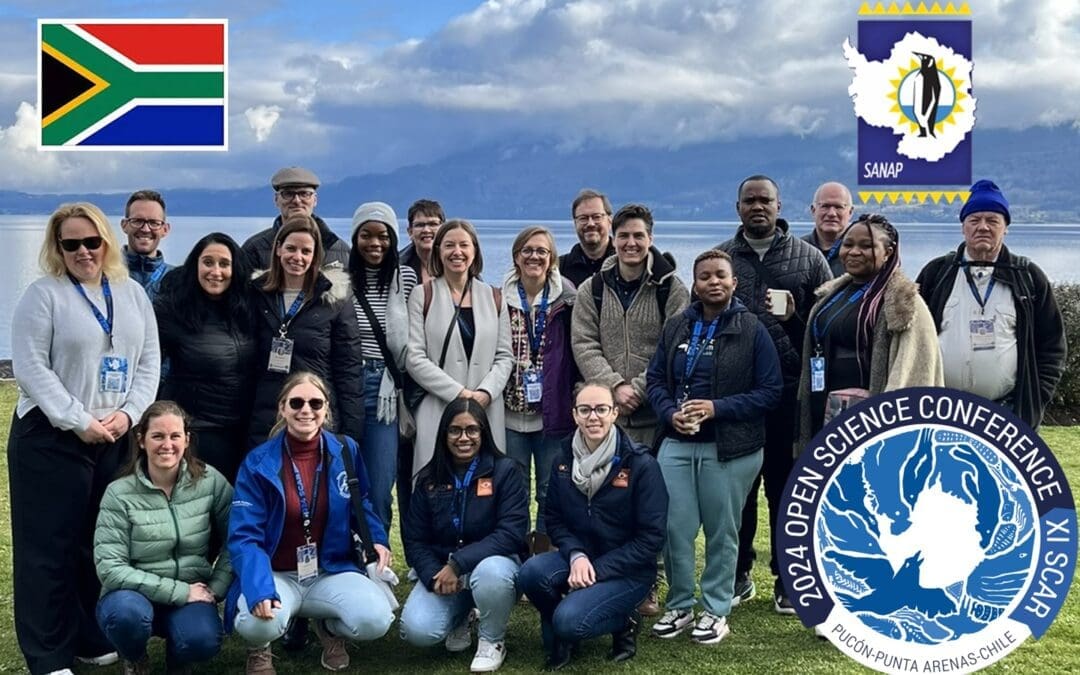

 In today’s rapidly evolving scientific landscape, research conferences serve as vital hubs for knowledge exchange, fostering innovation, and building collaborations across disciplines. The recent SCAR conference held in Pucon, Chile during August brought together leading scholars and emerging researchers from around the globe. The event was packed with groundbreaking presentations, hands-on workshops, and insightful discussions that highlighted the latest trends shaping the future of research.
In today’s rapidly evolving scientific landscape, research conferences serve as vital hubs for knowledge exchange, fostering innovation, and building collaborations across disciplines. The recent SCAR conference held in Pucon, Chile during August brought together leading scholars and emerging researchers from around the globe. The event was packed with groundbreaking presentations, hands-on workshops, and insightful discussions that highlighted the latest trends shaping the future of research.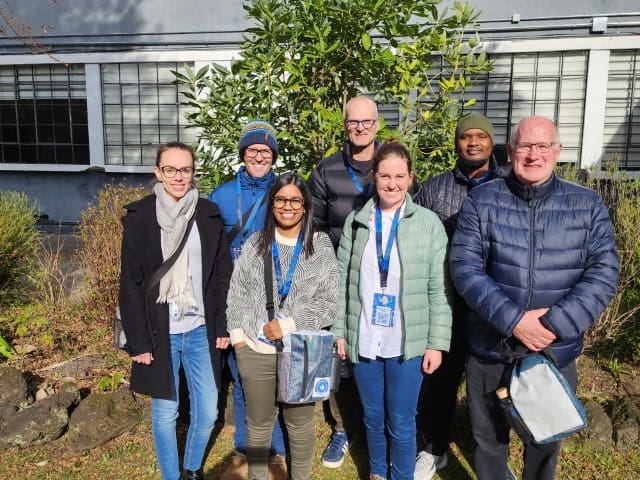 Here’s a closer look at the highlights and takeaways from this year’s conference. (above: Session on sub-Antarctic was an all South African session)
Here’s a closer look at the highlights and takeaways from this year’s conference. (above: Session on sub-Antarctic was an all South African session)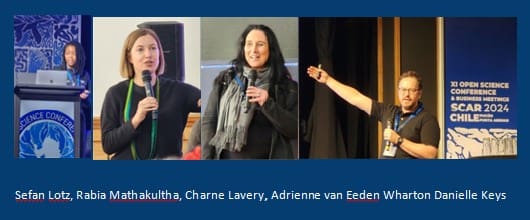 Groundbreaking Research Papers. One of the conference’s core components was the presentation by researchers during the different parallel sessions. Each session provided opportunity for Q&A, enabling in-depth conversations between the audience and the researchers, fostering a true sense of intellectual community. South African researchers presented during these sessions. (above a few presenters captured during their present picture above: Session on sub-Antarctic was an all South African sessions)
Groundbreaking Research Papers. One of the conference’s core components was the presentation by researchers during the different parallel sessions. Each session provided opportunity for Q&A, enabling in-depth conversations between the audience and the researchers, fostering a true sense of intellectual community. South African researchers presented during these sessions. (above a few presenters captured during their present picture above: Session on sub-Antarctic was an all South African sessions)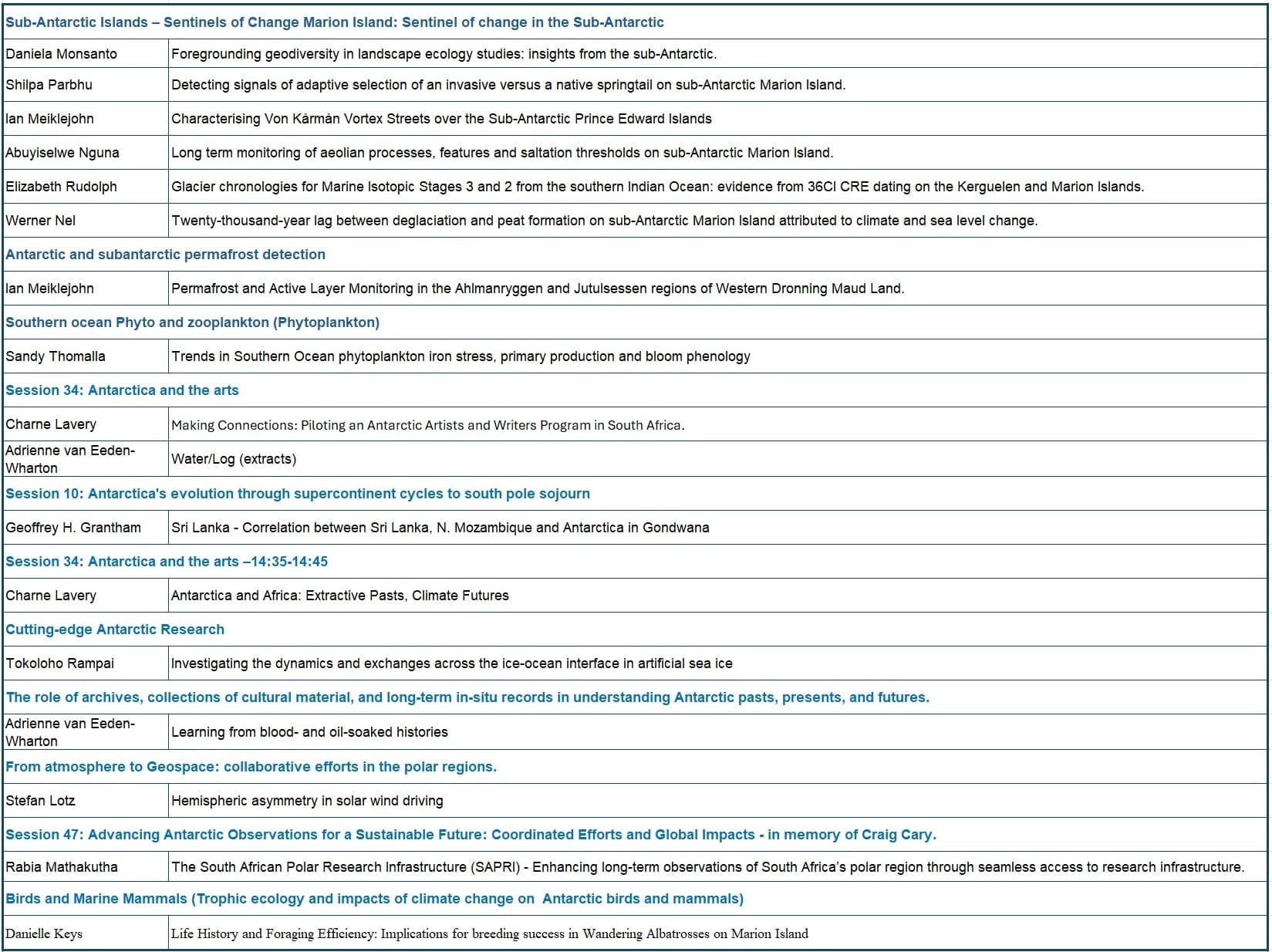 Workshops. Experts from organizations guided participants through various disciplines. Ria Olivier held a workshop on publications in the Antarctica Community and resources on data management
Workshops. Experts from organizations guided participants through various disciplines. Ria Olivier held a workshop on publications in the Antarctica Community and resources on data management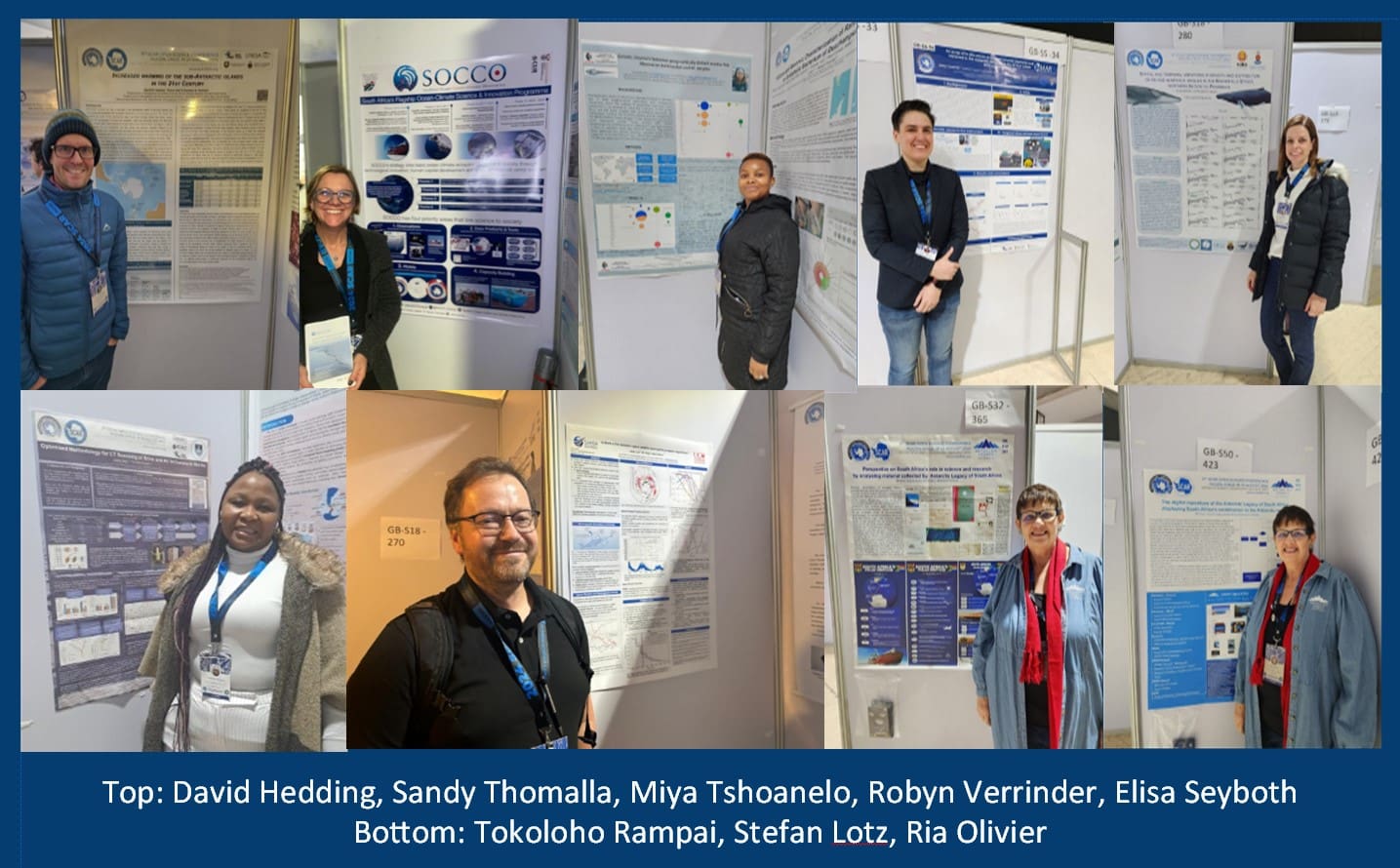 Poster Sessions: Spotlight on Research in addition to formal presentations, these sessions provided a platform for researchers to showcase their work.
Poster Sessions: Spotlight on Research in addition to formal presentations, these sessions provided a platform for researchers to showcase their work. Networking and Collaboration. Beyond the formal sessions, the networking opportunities were an integral part of the conference. Through social events, coffee breaks, and an industry exhibition, participants had the chance to connect with peers, potential collaborators, and mentors.
Networking and Collaboration. Beyond the formal sessions, the networking opportunities were an integral part of the conference. Through social events, coffee breaks, and an industry exhibition, participants had the chance to connect with peers, potential collaborators, and mentors.
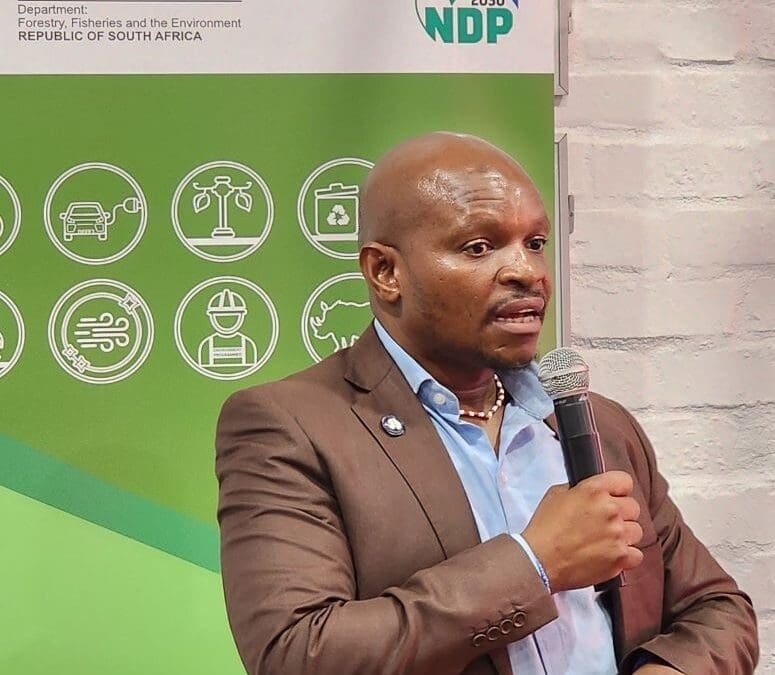
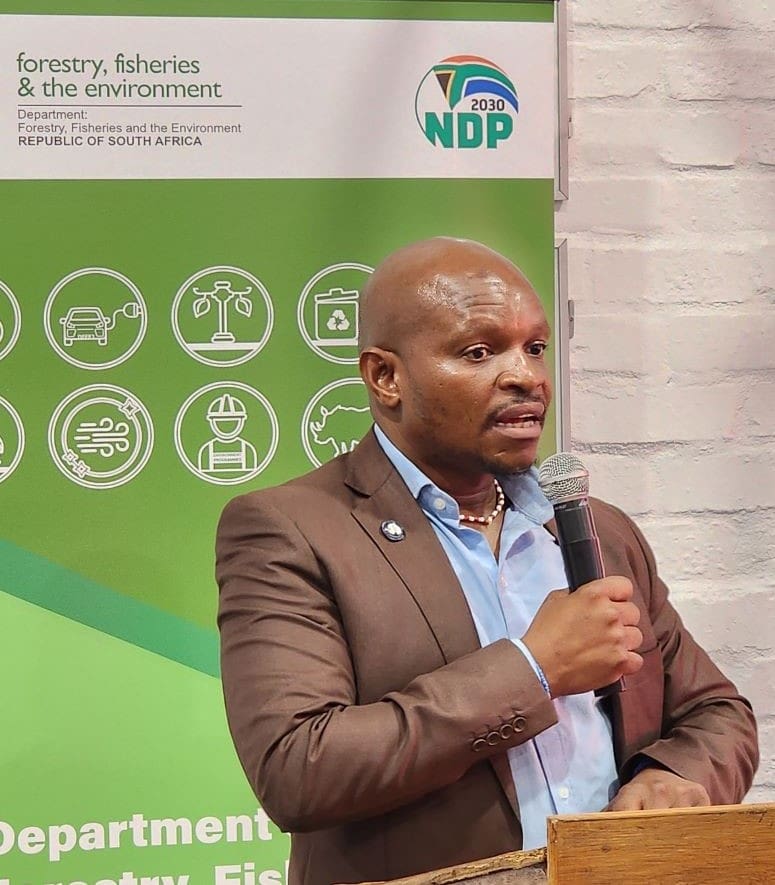
 A departure ceremony took place at East Pier, Cape Town today. Mr. Rodgerson Hlophe(right) – Acting Director: Southern Oceans and Antarctic Support was the Programme director and introduce the takeover personnel and the Gough 70 overwintering team.
A departure ceremony took place at East Pier, Cape Town today. Mr. Rodgerson Hlophe(right) – Acting Director: Southern Oceans and Antarctic Support was the Programme director and introduce the takeover personnel and the Gough 70 overwintering team.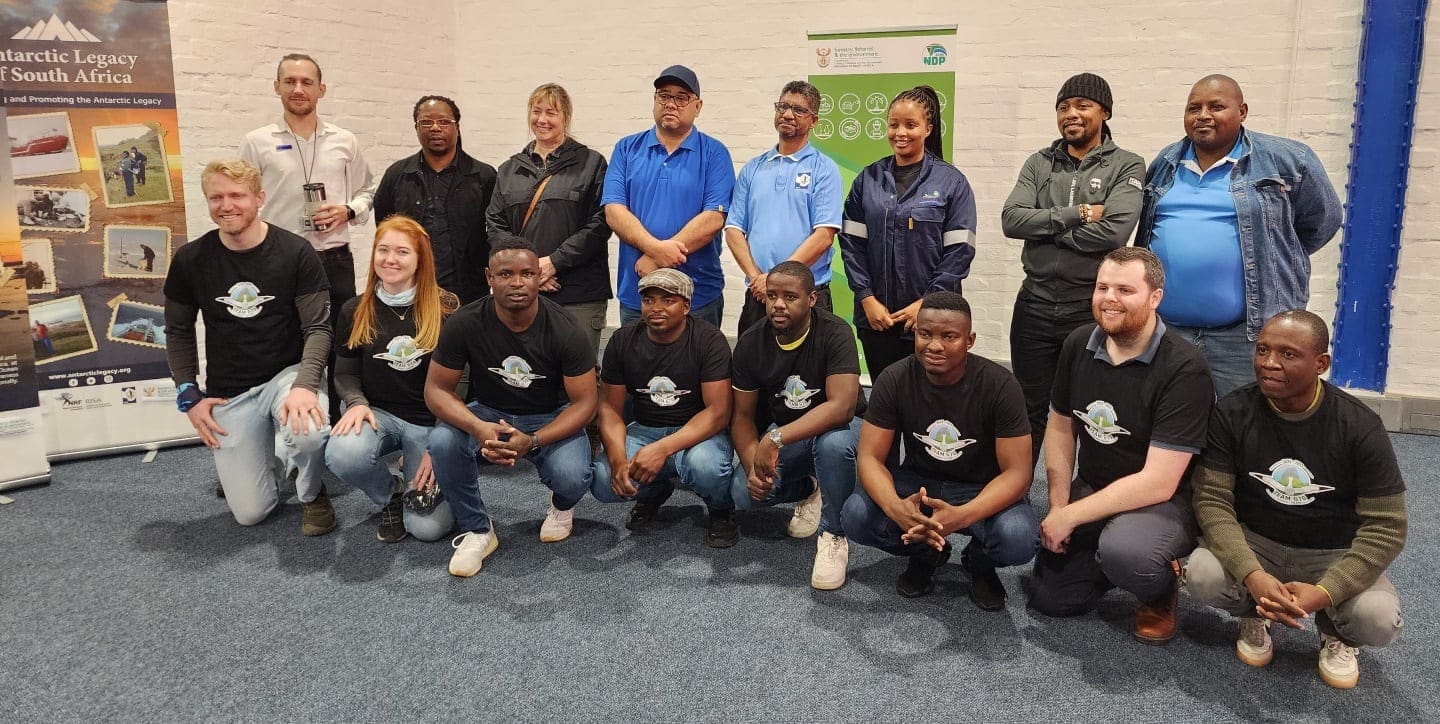 Acting Chief Director: Specialist Monitoring Services Ashley Johnson gave a farewell speech to GOUGH 70 overwintering team. and wishes them all the best for the time they will spend on Gough Island.
Acting Chief Director: Specialist Monitoring Services Ashley Johnson gave a farewell speech to GOUGH 70 overwintering team. and wishes them all the best for the time they will spend on Gough Island.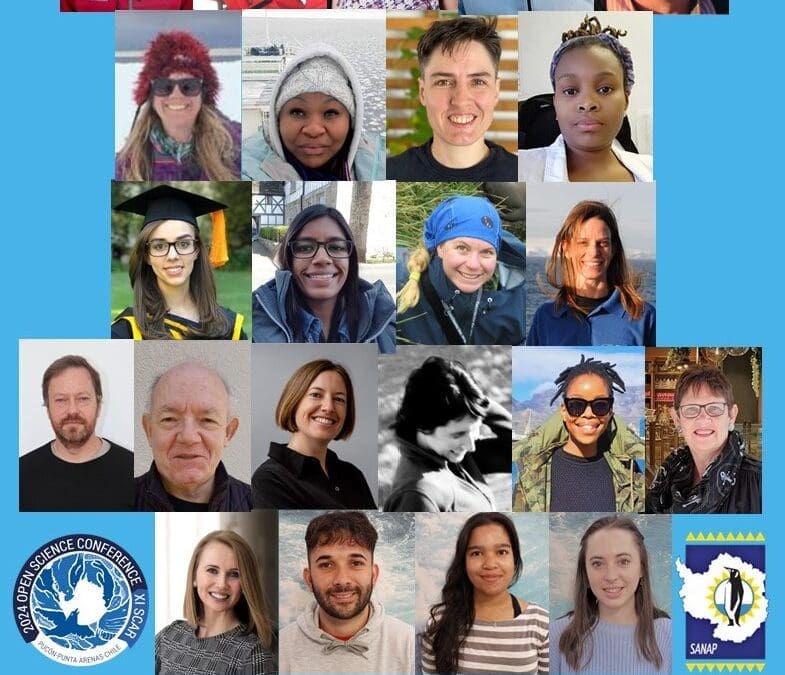
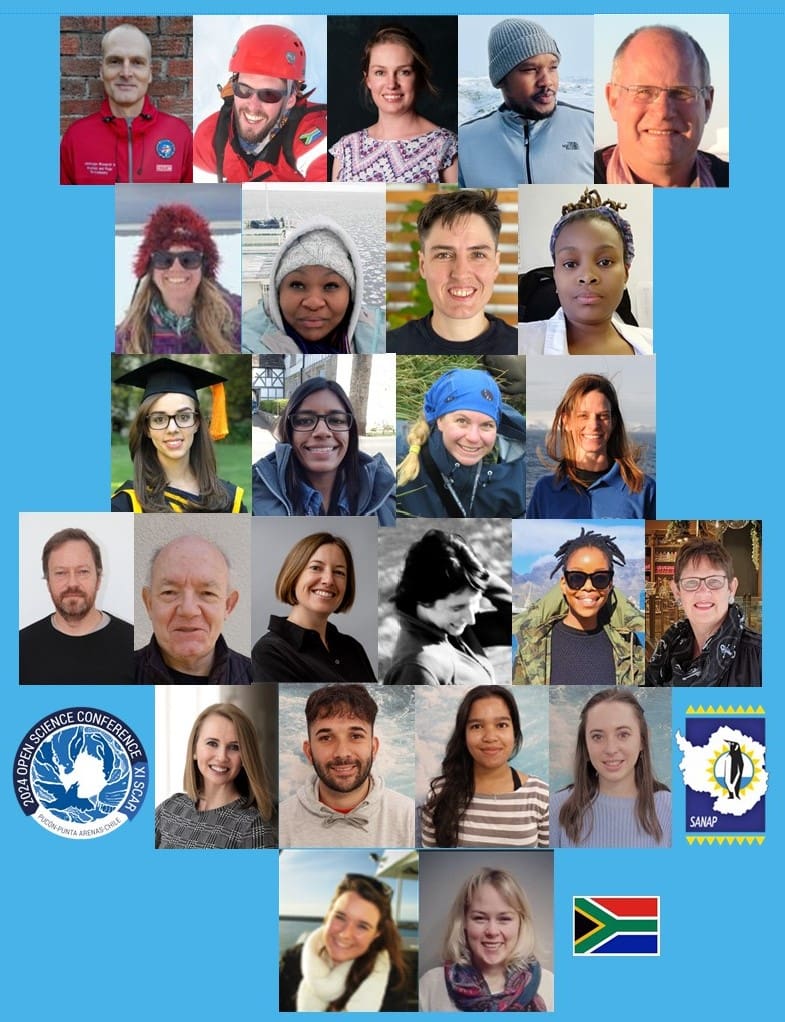
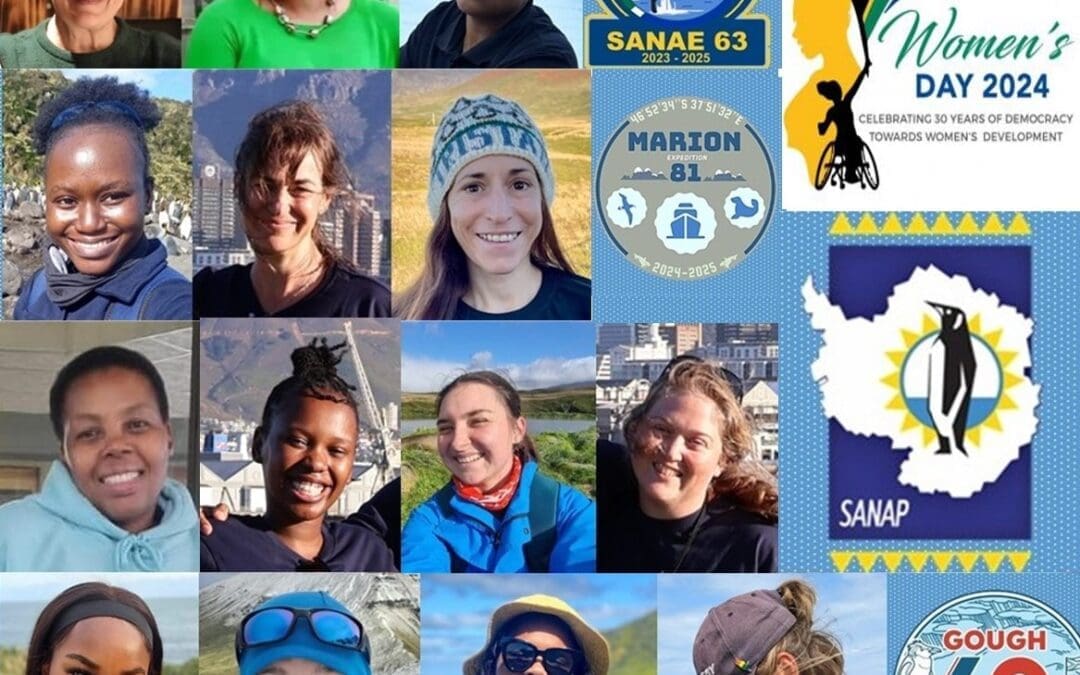
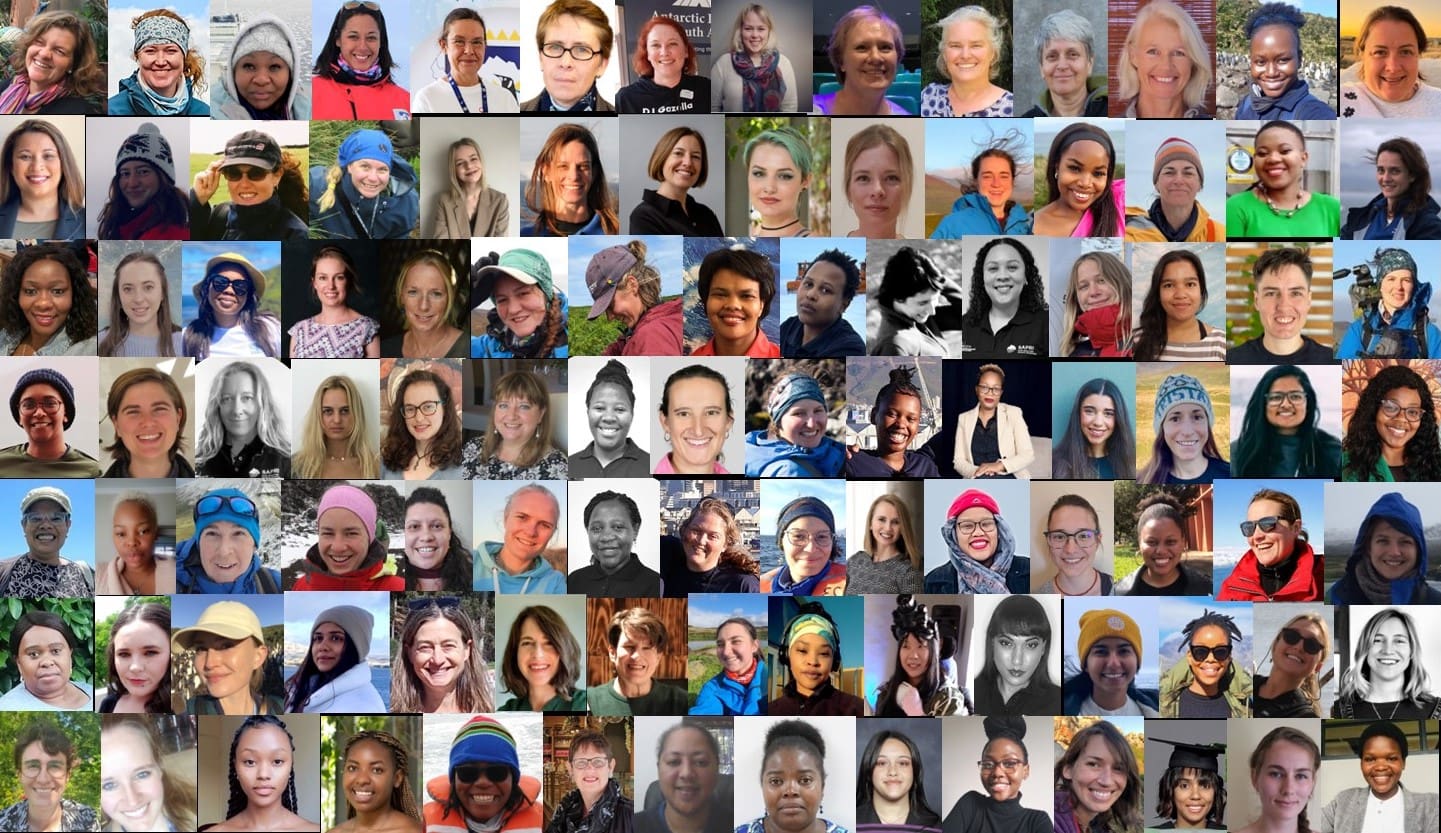 In the SANAP community we are celebrating all those involved as Researchers, Scientists, and Students at tertiary and research institutions and infrastructures, and personnel within the National Research Foundation, the Department of Forestry, Fisheries and the Environment, the Department of Public works and Infrastructure, the South African Weather Services, the South African National Space Agency, the South African Polar Research Infrastructure and all the women serving as part of the crew of the S.A. Agulhas II.
In the SANAP community we are celebrating all those involved as Researchers, Scientists, and Students at tertiary and research institutions and infrastructures, and personnel within the National Research Foundation, the Department of Forestry, Fisheries and the Environment, the Department of Public works and Infrastructure, the South African Weather Services, the South African National Space Agency, the South African Polar Research Infrastructure and all the women serving as part of the crew of the S.A. Agulhas II. Celebrating our women overwintering team members at our stations: Antarctica (SANAEIV), Marion Island and Gough Island.
Celebrating our women overwintering team members at our stations: Antarctica (SANAEIV), Marion Island and Gough Island.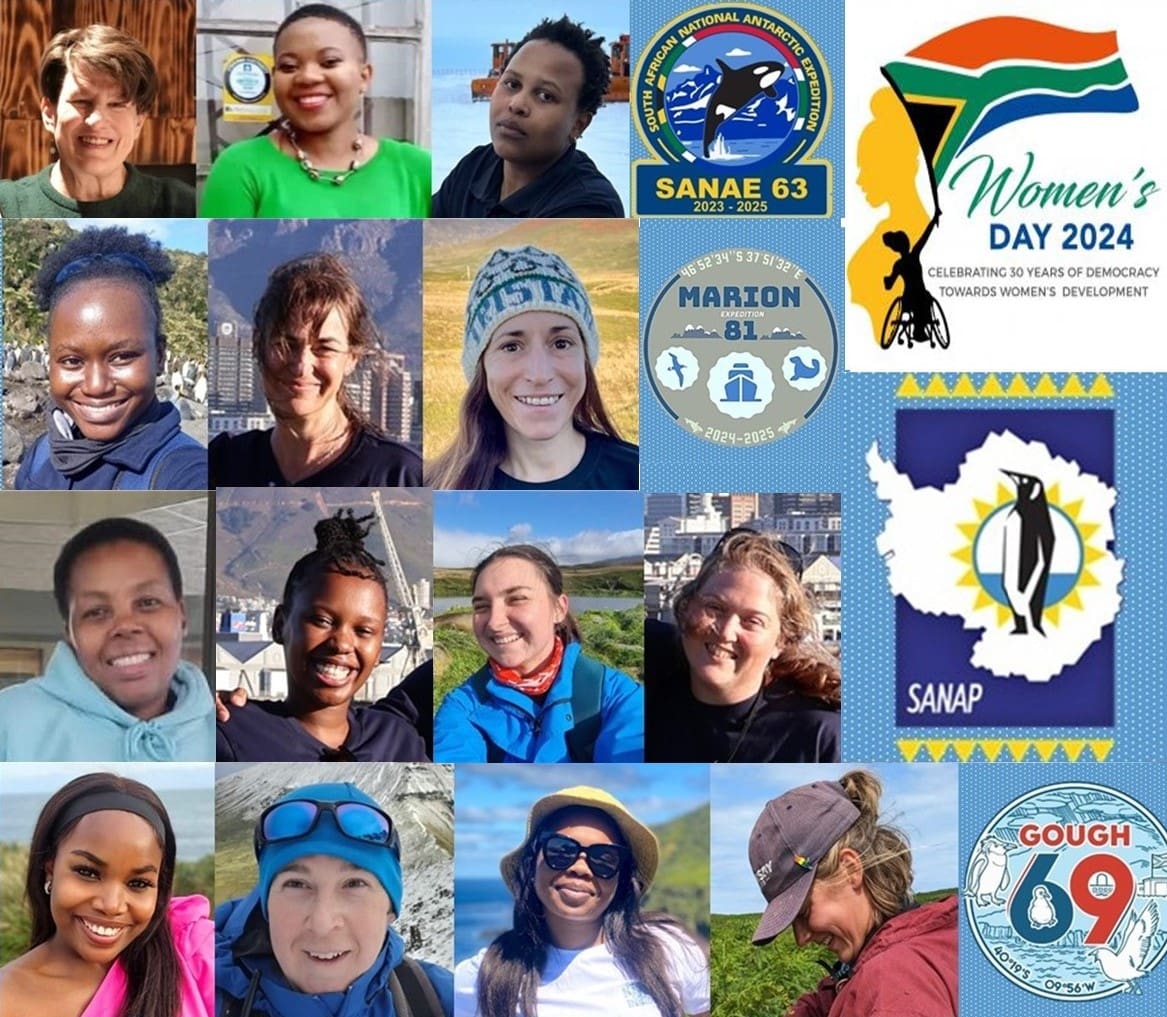 2024 women’s day commemoration is a reminder of the important contributions that are made by women to society, as well as a time to reflect on the advances in women’s rights. During 30 years of democracy, South Africa has made significant strides in advancing gender equality in all domains of society, including economic empowerment of women.
2024 women’s day commemoration is a reminder of the important contributions that are made by women to society, as well as a time to reflect on the advances in women’s rights. During 30 years of democracy, South Africa has made significant strides in advancing gender equality in all domains of society, including economic empowerment of women.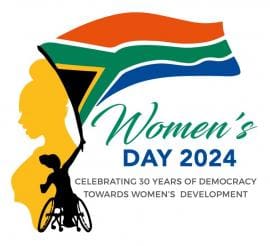 Women’s Day 2024 is the first national day led by the Government of National Unity (GNU) and takes place in a rural community as part of including all South Africans in national events, and placing a focus on the achievements and needs of women in all corners of the country. President Cyril Ramaphosa is expected to officiate the
Women’s Day 2024 is the first national day led by the Government of National Unity (GNU) and takes place in a rural community as part of including all South Africans in national events, and placing a focus on the achievements and needs of women in all corners of the country. President Cyril Ramaphosa is expected to officiate the 
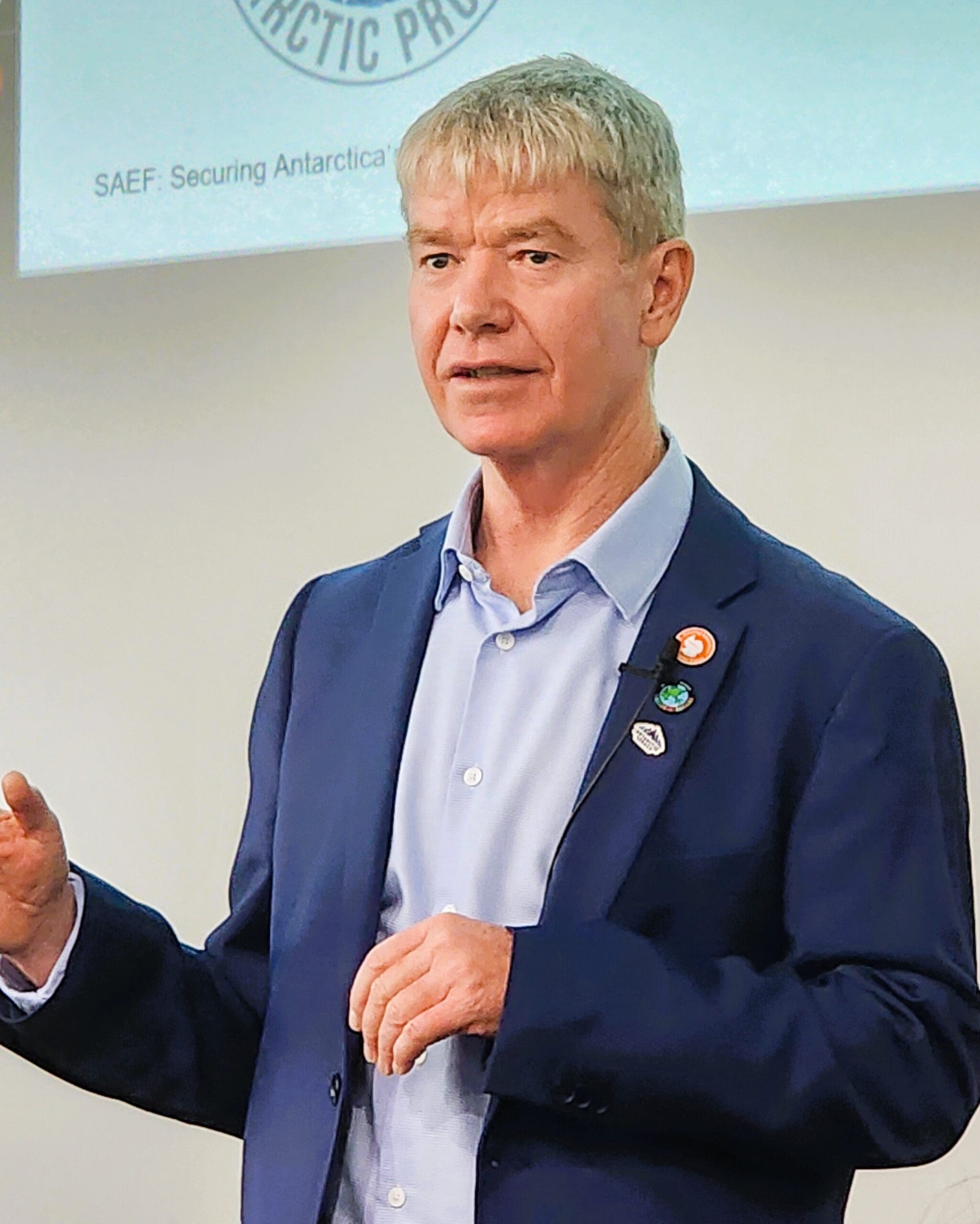 Prof Steven Chown of
Prof Steven Chown of 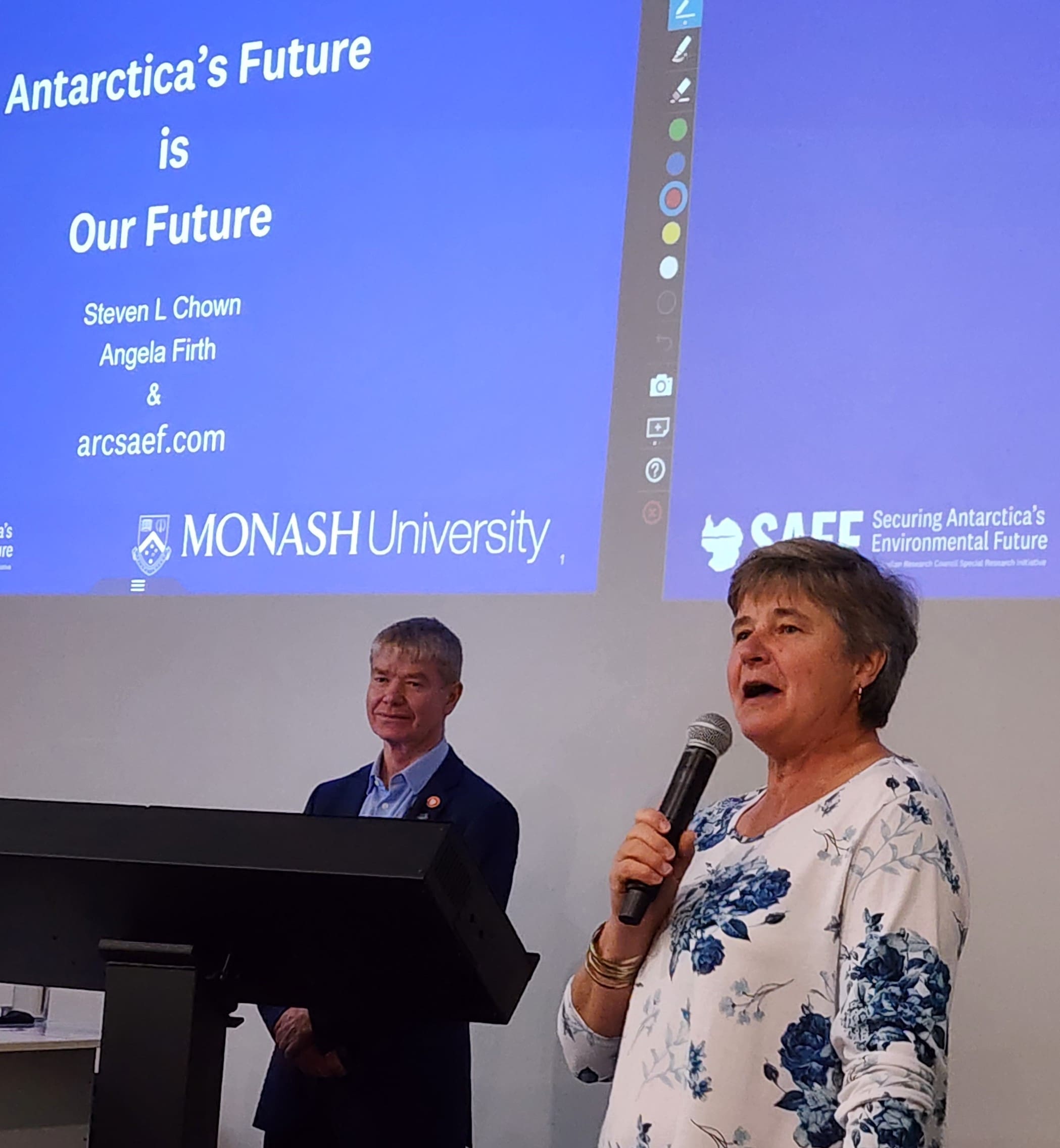 Prof Theresa Wossler, Head of the department, welcomed Prof Chown and introduced him to the attendees. The presentation and talk were attended by eighty-six people in person, who were able to have a chat with Prof Chown afterwards in a coffee break. The talk was streamed online and ninety-six people, representing institutions such as Stellenbosch University, Nelson Mandela University, University of Cape Town, University of Johannesburg, University of South Africa, University of Pretoria, the National Research Foundation, the Department of Forestry, Fisheries, and the Environment and from Belgium from the Department of Natural Sciences were able to attend
Prof Theresa Wossler, Head of the department, welcomed Prof Chown and introduced him to the attendees. The presentation and talk were attended by eighty-six people in person, who were able to have a chat with Prof Chown afterwards in a coffee break. The talk was streamed online and ninety-six people, representing institutions such as Stellenbosch University, Nelson Mandela University, University of Cape Town, University of Johannesburg, University of South Africa, University of Pretoria, the National Research Foundation, the Department of Forestry, Fisheries, and the Environment and from Belgium from the Department of Natural Sciences were able to attend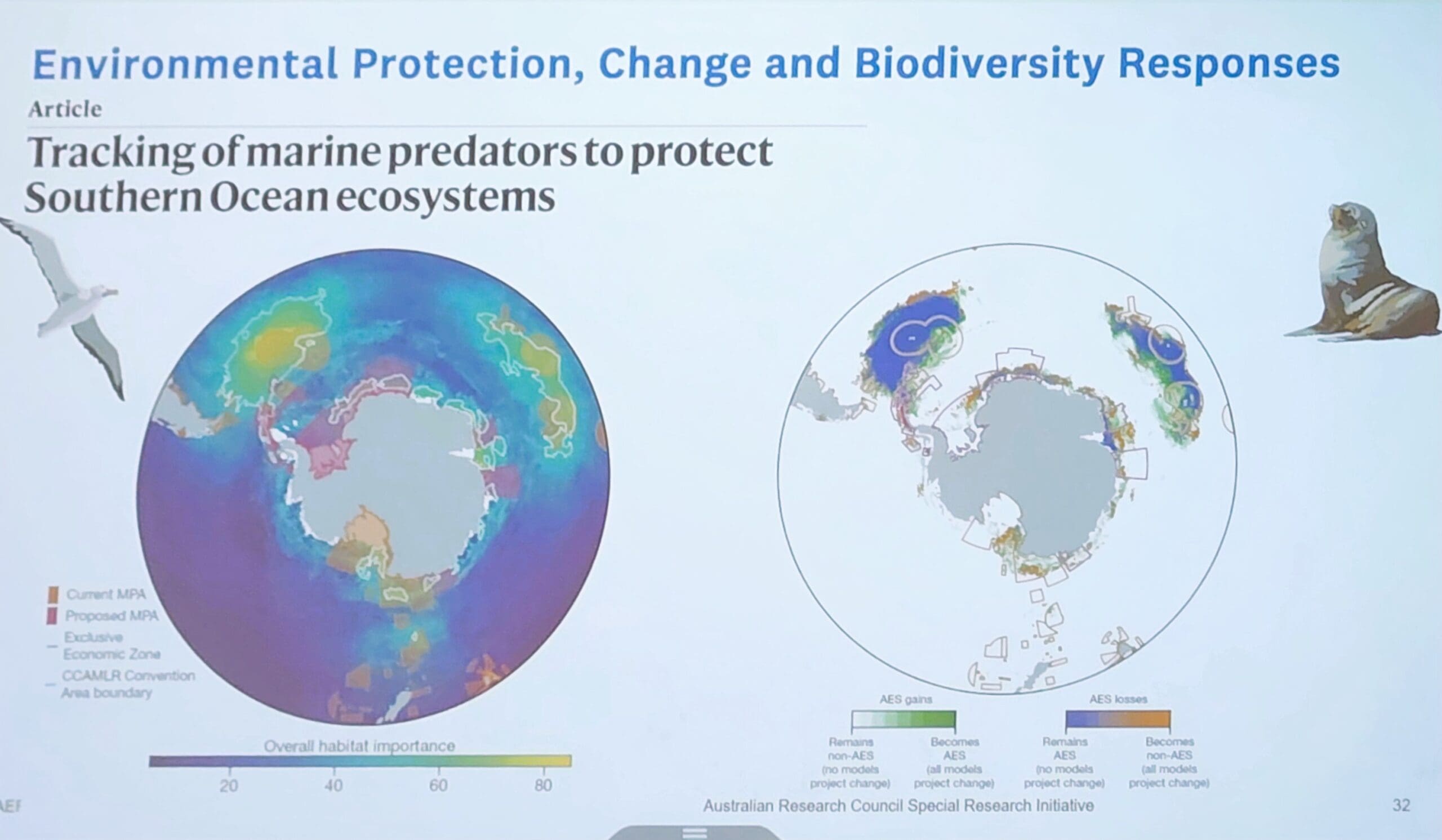 Antarctica is also home to some of the world’s most extraordinary biodiversity. While we may be used to its value in western culture, appreciation for its life has a much longer history with first peoples. Biodiversity is now significantly under threat from changing climates, human activities, and their interaction.
Antarctica is also home to some of the world’s most extraordinary biodiversity. While we may be used to its value in western culture, appreciation for its life has a much longer history with first peoples. Biodiversity is now significantly under threat from changing climates, human activities, and their interaction.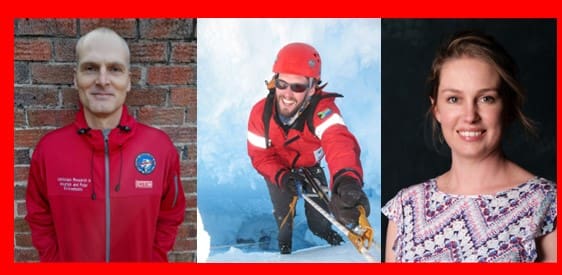
 Article published by Werner Nel, Dominic Hodgson, David Hedding, Alex Whittle and Elizabeth Rudolph
Article published by Werner Nel, Dominic Hodgson, David Hedding, Alex Whittle and Elizabeth Rudolph



